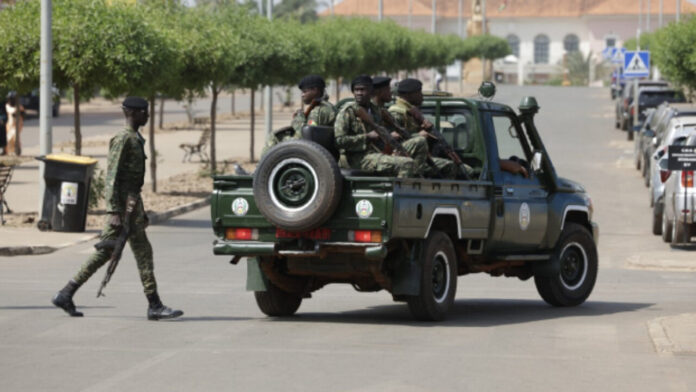Nigeria, on Thursday, condemned the military coup in Guinea-Bissau and called for the immediate restoration of democratic order, joining the African Union (AU), Ghana and election observers in rejecting the takeover.
In a statement, the Federal Ministry of Foreign Affairs said it was dismayed by the events in the West African country and described the military action as “unfortunate.” Ministry spokesperson Kimiebi Ebienfa said the coup “undermines the democratic progress, constitutional order, and stability” of the region. He stressed that it violated the ECOWAS Protocol on Democracy and Good Governance.
Ebienfa also told journalists that former President Goodluck Ebele Jonathan, who led the West African Elders Forum Election Observation Mission to monitor last Sunday’s presidential and legislative elections, is safe and out of the country.
Nigeria urged all parties in Guinea-Bissau to exercise restraint, commit to peaceful dialogue and respect the outcome of the recent elections. It warned that those responsible would be held accountable and said it would work with regional and international partners to ensure a swift return to constitutional governance.
The condemnation followed Wednesday’s announcement by military officers who declared they had taken “total control” of the country, suspended the electoral process and closed the borders.
General Denis N’Canha, head of the presidential military office, said a command made up of all branches of the armed forces would lead the country “until further notice”. The soldiers also arrested President Umaro Sissoco Embalo, who had been expected to win Sunday’s vote.
Election observers from ECOWAS and the African Union also denounced the coup. In a joint statement, they said the action was a “blatant attempt to disrupt the democratic process” and urged both blocs to take steps to restore constitutional order.
AU Commission Chair Mahmoud Ali Youssouf called for the immediate release of Embalo and other detained officials, reiterating the AU’s policy of zero tolerance for unconstitutional changes of government. He urged all parties to avoid further escalation and reaffirmed the AU’s readiness to work with ECOWAS to stabilise the situation.
Ghana issued its own strong response late Wednesday. Its foreign ministry described the coup as a “direct assault on democratic governance” and called for constitutional order to be restored without delay. It also urged protection for ECOWAS election observers, including the mission’s leader, Ghanaian Ambassador Baba Kamara.
Nigeria released a second statement on Thursday expressing “profound dismay and deep concern”, again urging the protection of detainees and warning that the coup risked reversing the country’s democratic gains.
The military faction behind the takeover, calling itself the High Military Command for the Restoration of National Security and Public Order, announced on state television that it had assumed full powers of the state. It suspended media operations, halted the electoral process, closed all borders and imposed a nightly curfew.
The coup unfolded as both incumbent Embalo and independent candidate Fernando Dias claimed victory in Sunday’s presidential election. Official results had not yet been announced.
According to a report by AFP, Africa has recorded 10 coups in five years, with recent unrest in Guinea-Bissau adding to a growing list of military takeovers across the continent.
Since 2020, Mali, Guinea, Sudan, Burkina Faso, Niger, Gabon and Madagascar have each seen power seized by soldiers, often amid political tensions, disputed elections or escalating insecurity. Several juntas have delayed transitions, extended mandates or rewritten constitutions, leaving many countries in prolonged periods of uncertainty and instability.

